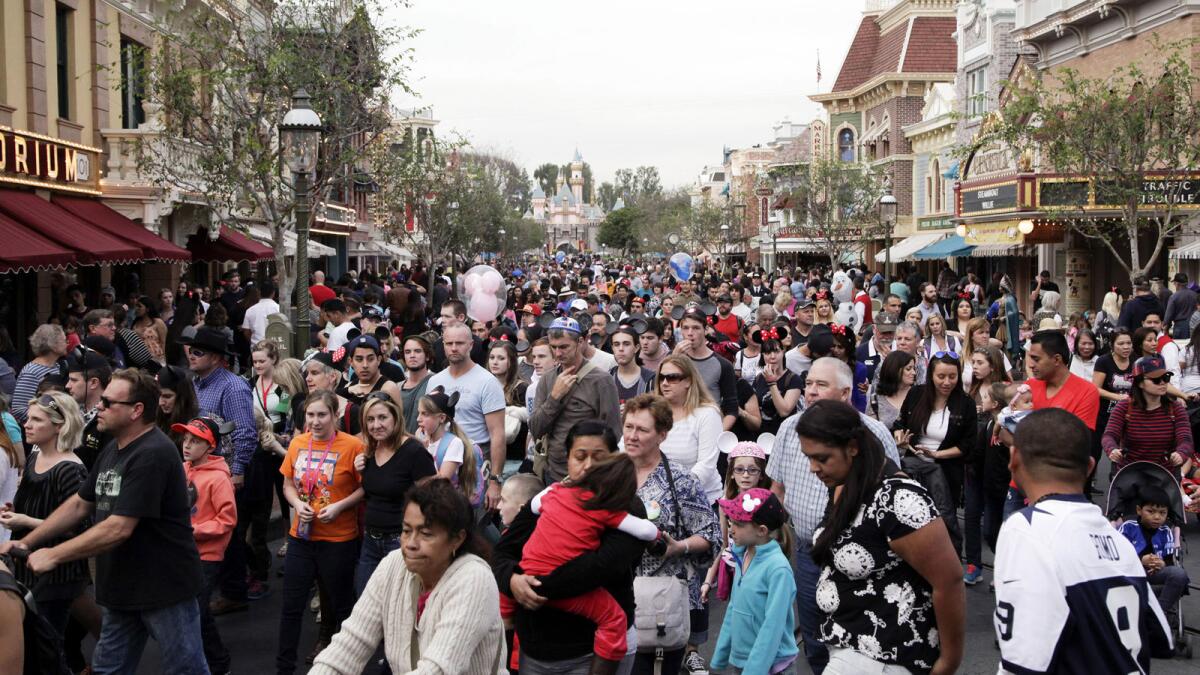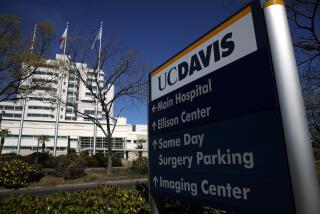Measles outbreak at 145 cases; identical to Philippines virus

There are now 119 measles cases confirmed in California, state officials said, as the number of cases in the California-centered outbreak rose to at least 145 patients across 12 counties, seven other states, Canada and Mexico.
The particular measles virus in the California cases shares the same genetic material as the type most commonly found in the Philippines, according to lab tests of the virus in 30 patients.
Scientists said the findings make it likely that the virus originated in the Philippines. But they still don’t know exactly how it got into the United States and ultimately to Disneyland.
Officials emphasized that the outbreak could have come from a traveler from any number of countries, given that Disneyland draws visitors from around the world. In fact, the type of measles found in the Philippines, known as B3, has been present in at least 14 other countries, including Brazil, Australia, England and Germany, as well as six other American states.
“The genotype is really the genetic fingerprint of the virus, and so it certainly tells us the number of cases that we have been seeing in California likely all relate to that individual that began at Disneyland,” said Dr. Matt Zahn, medical director of epidemiology for Orange County.
“The California Department of Public Health has not identified the source country for the measles outbreak,” said state epidemiologist Gil Chavez.
State officials this week cautioned those who were planning spring-break trips to double check whether their vaccinations were up to date – especially for those “heading to the Philippines or other countries where measles outbreaks are occurring.”
More information on recommended vaccinations before travel can be found on the U.S. Centers for Disease Control and Prevention website.
“The current outbreak beginning in December 2014 is likely to have started from a traveler who got measles overseas,” California health officials said in a statement.
Of the 119 cases in California, at least 39 can be directly linked to visitors or employees at Disneyland during the holidays, 27 were family members or people who came in close contact with someone who had the measles, and at least eight caught the measles by being in a public area such as an emergency room where a confirmed case was known to be present, officials said.
Cases connected to the California-centered outbreak also have been confirmed in at least seven other states: Arizona (five), Utah (three), Washington (two), Michigan (one), Oregon (one), Colorado (one) and Nebraska (one) -- as well as Canada (10) and Mexico (two).
Twelve counties in California have confirmed measles cases: Alameda, Contra Costa, Los Angeles, Marin, Orange, Riverside, San Bernardino, San Diego, San Mateo, Santa Clara, Solano and Ventura.
Orange County has 35 confirmed cases. Los Angeles County follows with 27 cases, San Diego County with 13 and Ventura with 12.
Fourteen of the California patients were infants younger than a year old. About 58% of the measles cases were adults 20 years or older.
“For those individuals for whom we have vaccination status, the majority are unvaccinated,” state health officials said.
Database: Look up vaccination rates at California child-care centers
Of the cases in California, about one in five has had to be hospitalized, officials said.
Federal recommendations call for the first dose of measles vaccination, known as MMR, to be given at 12 to 15 months of age, with a second dose between ages 4 and 6. California law requires two doses of the measles vaccination before kindergartners can enroll, but parents may obtain exemptions for the vaccines if they say the inoculations conflict with their personal beliefs.
Symptoms of measles include fever as high as 105 degrees Fahrenheit, cough, runny nose, redness of eyes, and a rash that begins at the head and spreads to the rest of the body. It can lead to inflammation of the brain, pneumonia and death.
Officials can take steps to protect unvaccinated people if their exposure to the measles virus is known. If caught within three days of exposure, a measles vaccine can provide protection from illness. Within six days of exposure, getting a substance called immunoglobulin -- concentrated antibodies extracted from donated blood that boost the immune system -- also can protect the patient, experts said.
Those who suspect they have the measles are urged to first call their healthcare provider before going to a clinic, enabling caregivers to make special preparations so patients don’t risk infecting others in the waiting room.
Have questions about measles? Read our FAQ and follow @RosannaXia and @ronlin for more news on the measles outbreak.
More to Read
Start your day right
Sign up for Essential California for news, features and recommendations from the L.A. Times and beyond in your inbox six days a week.
You may occasionally receive promotional content from the Los Angeles Times.








